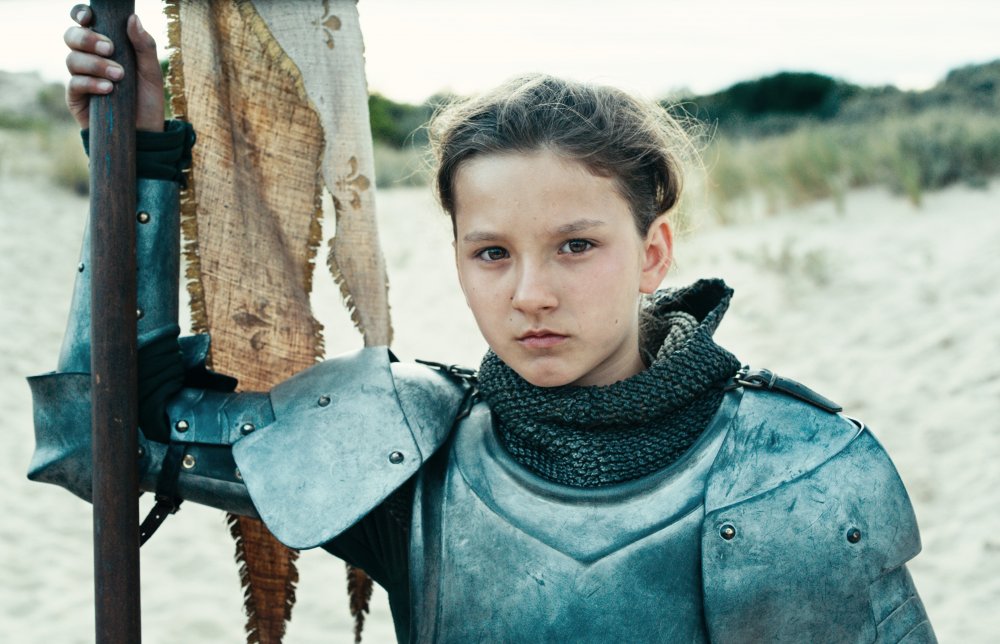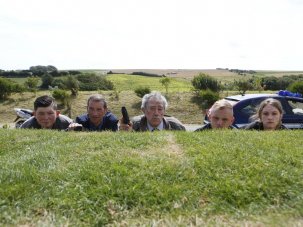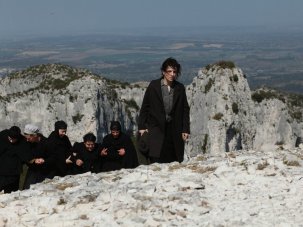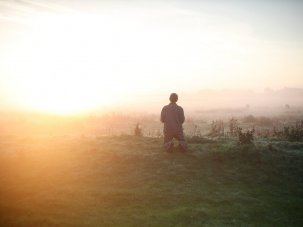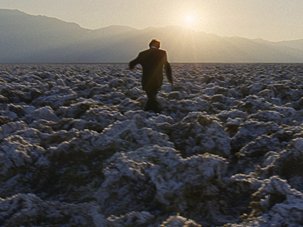Picture the dunes of the Pas de Calais. Tramping across the sand laboriously comes a male figure dressed in the elaborate velvet robes of a 15th-century cardinal, come to discuss the current state of the battle between the French and the alliance of the English and Burgundians. The comic precedent for this would be Monty Python, except that this is meant to be one of Bruno Dumont’s more serious films, so instead I read this as third-generation theatre of the absurd. One imagines other stage directions – “Enter, over the dune back right, Gilles de Rais, ashen-faced and battle-scarred” – and, before you know it, there he is, hesitantly ready to stand and deliver.
France 2019
2hrs 17mins
Director Bruno Dumont
Cast
Jeanne d’Arc Lise Leplat Prudhomme
Jean-François Causeret
Daniel Dienne
Fabien Fenet
Robert Hanicotte
Yves Habert
[1.85 : 1]
French
► Trailer
The possibility of tonal confusion remains, however, because, with Little Quinquin (2014), Slack Bay (2016) and Coincoin and the Extra-Humans (2018) Dumont has made effective absurdist comedies. I’d even argue that comedy has been present in his films ever since the sweaty police captain in that lugubrious crime fantasy L’Humanité (1999) said, “Things are really hotting up now,” as everyone was standing around purposelessly.
The nervous and lost feeling non-actors can generate has long been a part of Dumont’s aesthetic, one he seems to relish. Jeanne is an am-dram-flavoured depiction of Joan of Arc’s capture and trial, a sequel to Jeanette: The Childhood of Joan of Arc, and stars the same child, Lise Leplat Prudhomme, currently ten years old, in the lead role, although she plays Jeanne in her final year of trial, when the record says she was 18 or 19. Prudhomme has a terrific piercing gaze and determined scowl and delivers her lines with appropriate ferocity; otherwise she looks unsteady.
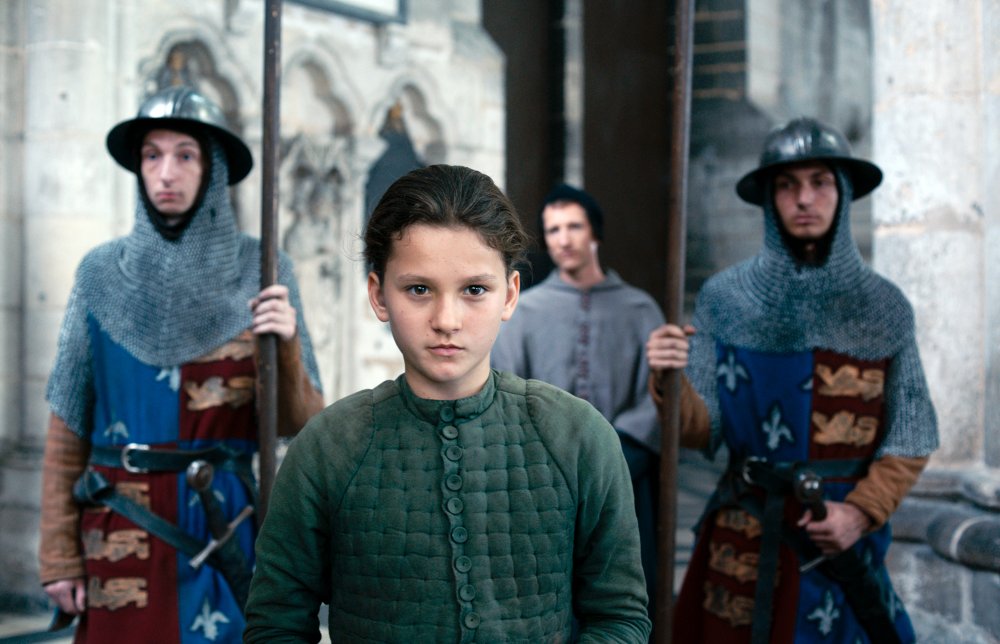
Why does Dumont indulge in these distracted, negligent and barely serious films about religious personages? Jeanne d’Arc is surely a figure as ‘done’ to death (sic) in France as, say, Elizabeth I is in the UK. What is to be gained by making a ten-year-old non-actor or ‘model’, as Bresson would have it, stand still in armour for ages, holding her halberd, visibly trembling from the effort, while we listen to Christophe sing falsetto and synth pieties on the soundtrack? Such scenes are akin to the moments in Lars von Trier’s Breaking the Waves when scepticism, religiosity, camp and pop music fuse momentarily so that you can’t distinguish faith from mockery, as when Emily Watson’s Bess dies and some very Christmas-card-like bells ring out above the clouds. But there’s nothing so visually literal-fantastic as that here so you don’t even get the thrill of outrageous kitsch. It’s all as solemn as a bad prog rock album.
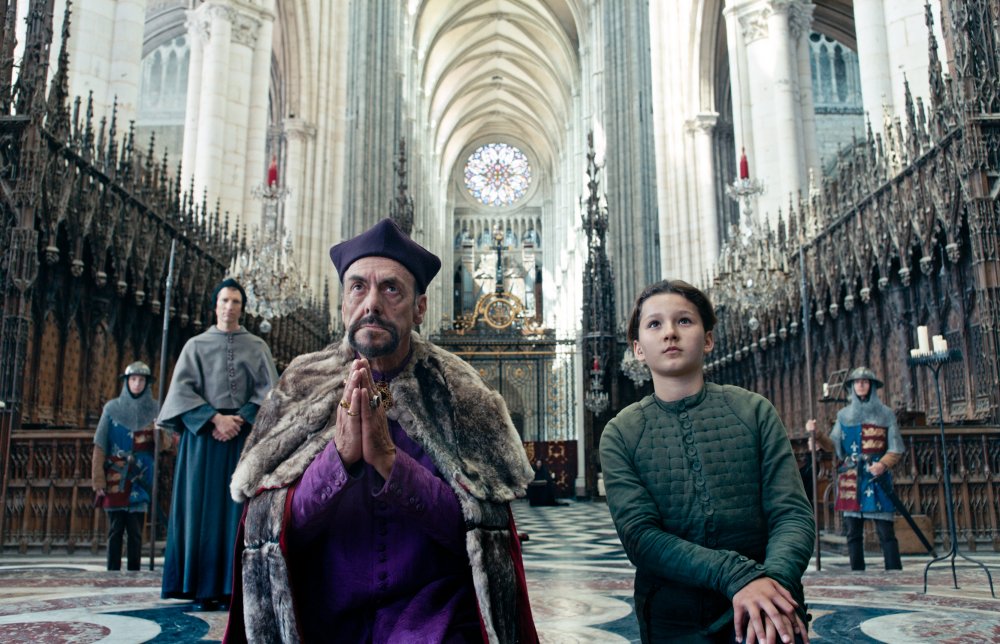
Of course the court case that takes up most of the film is one of the most absorbing in history, which is why it has fascinated Villon, Voltaire, Southey, Schiller, Coleridge, Thérèse of Lisieux, Mark Twain, Shaw, Brecht (three times), Anouilh and many others in literature as well as Carl Dreyer, Roberto Rossellini, Otto Preminger, Robert Bresson, Paul Verhoeven, Jacques Rivette and Luc Besson in film (never mind the rest of the arts). The ponderous trial proceedings here were shot (I believe) in Amiens cathedral – standing in for Rouen. The interior is made so pristine, bright and perfect that it looks like CGI. The cutting from this place of grandeur to the WWII bunkers on the dunes used as Joan’s prison is a contrast of sledgehammer clumsiness equivalent to a spaceship interior being cut into a kitchen-sink drama; but then some people see that kind of thing as inventive.
A refined sense of academic distance occupies Joan’s prosecutors as they decide the question of her supposed blasphemy, and there are some nice moments amidst the debate as well a few startling images of Joan herself as her end nears, but Jeanne is otherwise a dull experience.
Some of my irritation is a question of personal taste. For me a vein of mild lofty contempt runs through nearly all of Dumont’s films. I tend to like the ones where it’s least detectable: La Vie de Jesus (1997), Hors Satan (2011), Camille Claudel 1915 (2013). Here he’s trudging sand.
-
The Digital Edition and Archive quick link
Log in here to your digital edition and archive subscription, take a look at the packages on offer and buy a subscription.




